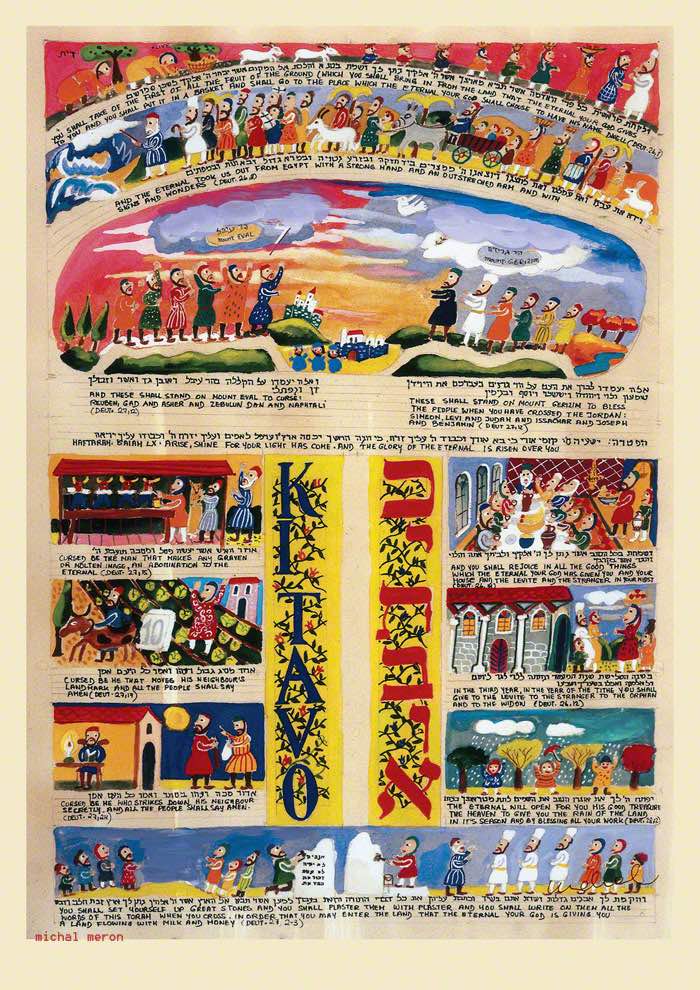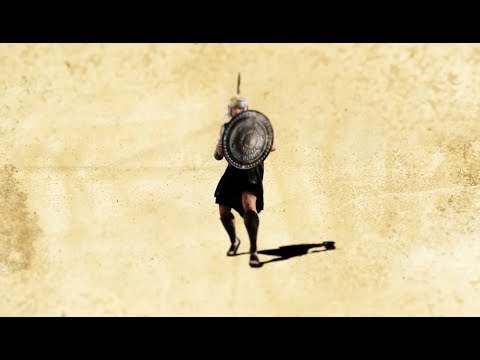Bonjour / Hello [nickname_else_first_name],
Table of contents
1) Perashat Hashavoua - Rabbi Eli Mansour
2) Halakhat Hashavoua (Halakhot related to day to day life)
Laws of Rosh Hashanah - Hazzan David Azerad
3) Holy Jokes!
1)PERASHAT HASHAVOUA
This Week's Parasha Insight with Rabbi Eli Mansour
Parashat Ki-Tabo: Harnessing Our Innate Creative Drive
The Torah in Parashat Ki-Tabo presents the Misva of Bikkurim, which obligates a farmer to take the first fruits that ripen, bring them to the Bet Ha’mikdash, and give them to the Kohen.
The unique importance of this Misva is expressed by an enigmatic comment of the Midrash regarding the very first words of the Torah – "Bereshit Bara Elokim" (literally, "In the beginning, G-d created…"). The Midrash interprets this phrase to mean that G-d created the world for certain things which are referred to as "Reshit" ("the first"). For example, the world was created for the sake of Torah study and observance, as the Torah is referred to as "Reshit" ("Hashem Kanani Reshit Darko" – Mishleh 8:22). Additionally, the Midrash remarks, the world was created for Am Yisrael, which are likewise called "Reshit" ("Reshit Tebuatoh" – Yirmiyahu 2:3). More surprisingly, the Midrash writes that the world was created for the sake of the Misva of Bikkurim, the first fruits, which are called "Reshit" ("Ve’lakahta Me’reshit Kol Peri Ha’adama" – Debarim 26:2).
What is special about this Misva, and how does its unique quality relate to the word "Reshit"?
A profound answer to this question was offered by Rav Haim of Sanz (1793-1876), in his work Dibreh Haim. He notes the approach taken by the Ramban in interpreting the verse, "Bereshit Bara Elokim," explaining that before the actual creation of the world, G-d created a certain force, the potential for creation. (The Ramban calls this force "Koah Hiyuli"). It was through this primal force that G-d then proceeded to create everything in the universe. Rav Haim of Sanz explains that we human beings, too, are endowed with this force, this potential for creativity. This force is the origin of our innate attraction to newness, and why we bore easily. A clear example is the frequency with which people today check their phones for new messages, new updates, and news flashes. In fact, the very word "news" with which the information industry refers to itself was chosen to appeal to this innate drive. We crave new information, new ideas, new experiences, and new achievements. This is because we are endowed with "Reshit" – with a force of potentiality, the power to create new things.
This drive, like all human drives, is both critically important, and exceedingly dangerous. It is what motives people to build, to develop, to arrive at new inventions and new groundbreaking ideas. However, left unchecked, this drive can lead a person to the wrong places. In his search for newness, he will seek forbidden experiences, and come up with woefully misguided ideas. This is an especially vexing problem for our generation, when we all carry a limitless reservoir of information in our pockets. People searching for something new can find anything on the internet – including new content which they should never be accessing.
The Misva of Bikkurim, Rav Haim of Sanz explains, represents the need to channel this innate creative drive toward the service of Hashem. After working very hard for months on end to produce fruit, the farmer finally sees the first ripened fruits, and craves them. But he is told not to eat them, and to instead reserve them for Hashem, so-to-speak, by bringing them to the Kohen in the Bet Ha’mikdash. This symbolizes the way we are to harness our power of "Reshit," our drive to experience newness, toward meaningful, spiritual goals.
It is natural to grow bored and restless, and to seek something new. This is a drive which we all have, and which we are all supposed to have. We should never try to suppress it – because it is part of our very beings. Instead, we need to channel this drive the right way. We should always be seeking to expand our horizons within the realm of Torah and Misvot – initiating and participating in new programs, seeking new opportunities for learning, for Hesed, for community involvement, and so on. This is the message of Bikkurim – that we are to take the power force of "Reshit" which Hashem implanted within us and utilize it to improve ourselves and to contribute to the world.
2) HALAKHAT HASHAVOUA
Selected & translated by David Azerad, Hazzan Maghen Abraham
The laws of Rosh Hashanah according to the rulings of Rabbi Obadiah Yosef
ZT”L
In what order should one eat the Simanim on Rosh Hashanah night?
Our sages established that on both nights of Rosh Hashanah to eat various kinds of
food as a good sign for the whole year. There is no need to follow the order written in the Machzor, however it is important that you first start the blessing with the dates since it is one of the seven fruits that Eretz Yisrael is blessed with then you can eat
the other fruits and vegetables
The appropriate time to eat the Simanim(signs) is after we make Hamotzi and not after the Kiddush.
Do you first say Yehi Ratzon or Bore Pri Ha’etz, which comes first?
One first should recite the Beracha and taste the fruit or vegetable and after proceed with the Yehi Ratzon .Some have the custom to hold the fruit in their hand and that one member of the household recites the Beracha for everyone and they all say Amen and they all taste from it ,then he continues with the Yehi Ratzon.
Bevirkat Shabbat Shalom Umevorch
David Azerad
3) HOLY JoKeS!!
Selection of funny snippets, loosely related to this weeks parashah, to brighten your day
Who had the tallest family tree in history?
Haman. His family tree was 50 cubits tall!
Fast forward a few thousand years and another mortal enemy of the Jewish people met his death on the gallows: Saddam Hussein. Which brings us to the following joke:
There is a custom in many countries that the night before a prisoner is executed, he is given a choice of whatever food he wants and and much food as he wants for his last meal. The night before his execution, the prison guards offered Saddam Hussein a meal. They asked him, “Mr. Hussein, how much food would you like for your last supper?”
“I want a thousand pounds of food.”
They asked him, “Mr. Hussein, why so much?”
So Saddam answered, “I WOULD LIKE TO EAT LIKE THERE’S NO TOMORROW!”
The prison guards brought him a thousand pounds of food. After he finished eating, Saddam asked the guard for a bencher (a prayer book). The guard was puzzled. “What do you need a bencher for?”
Saddam Hussein smiled. “I WOULD LIKE TO MAKE MY BRACHA ACHARONA!” (after blessing, lit. last blessing.)

Jewish Art from Venice












